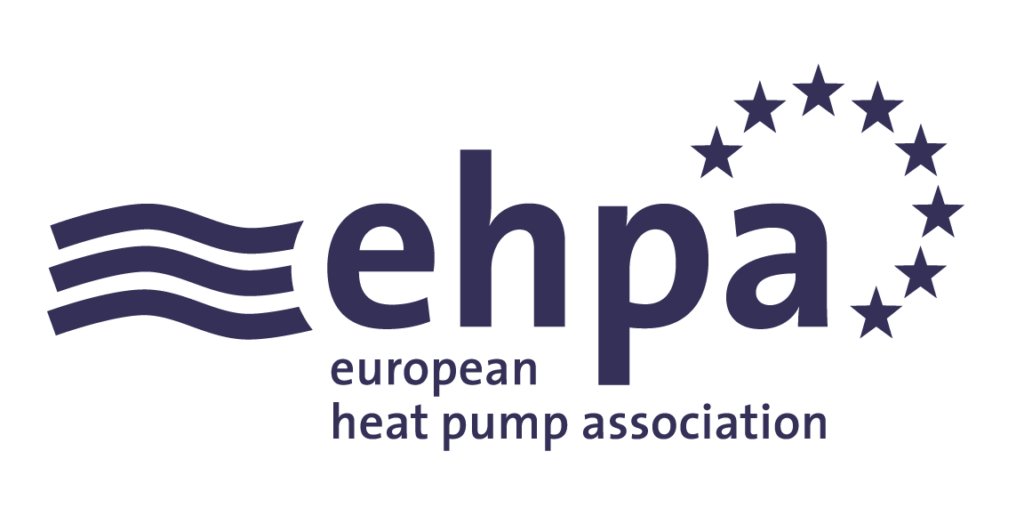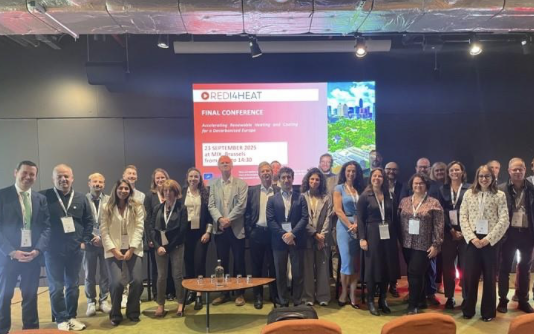With buildings being responsible for 40% of Europe’s CO₂ emissions, EU project REDI4HEAT has shown that bold policies and practical tools are turning clean heating and cooling into a reality.
Over the past three years, the EU-funded project has worked hand in hand with authorities in Greece, Germany, Poland, Portugal, and Croatia to strengthen National Energy and Climate Plans and accelerate renewable heating and cooling. Its Final Conference, held on 23 September at The MIX, Brussels together with the 2025 Heat Pump Forum and Awards, marked not just the close of a project, but the launch of a practical legacy: the Heat Transition Toolbox & Knowledge Sharing Centre – a one-stop resource of policy measures, best practices, and training materials designed to guide Member States well beyond 2025.
Reflecting on these achievements, project coordinator Rosie Christodoulaki stressed the importance of NECPs as a driver of change: “The NECPs are proving to be a powerful tool for both the EU and its Member States to accelerate climate action and the energy transition, especially in this crucial decade. The new NECPs already show improvements compared to earlier versions. In particular, the targets for renewable energy and energy efficiency have been strengthened, bringing them more in line with EU legislation. This is a very encouraging development for heating and cooling decarbonisation.”
Organised by the European Heat Pump Association (EHPA), the conference demonstrated how REDI4HEAT not only delivered knowledge, tools, and capacity-building activities, but also helped embed heating and cooling decarbonisation in national energy strategies across Europe.
Launched under the EU LIFE programme, REDI4HEAT has helped close the gap between Europe’s climate ambition and the reality of a sector responsible for 40% of CO₂ emissions. Through advisory services in five Member States (Greece, Germany, Poland, Portugal, and Croatia), the project developed:
- Strategic policy priorities for heating and cooling.
- Policy adoption scenarios and assessment guidelines.
- The Heat Transition Toolbox & Knowledge Sharing Centre, a digital hub for best practices, policy trackers, and training resources — including a portfolio of 25 measures to accelerate the decarbonisation of heating and cooling across district, residential, and non-residential sectors.
- Capacity-building activities – from workshops in Warsaw, Thessaloniki, Zagreb, and Braga to EU-level networking at the Decarb Cities Conference – which strengthened collaboration between policymakers, industry, and civil society.
The high-level event featured opening remarks by Francesca Tamburrini (EHPA) and Vasiliki Drosou (CRES), followed by keynote speeches from Matthieu Ballu (European Commission, DG ENER) and Dimitrios Kardomateas (CRES).
Project partners, including Solar Heat Europe (SHE), Agência para a Energia (ADENE), and the Centre for Renewable Energy Sources and Savings (CRES), presented the project’s results and practical outcomes.
Two panel discussions then brought together institutional, industry, and technical voices to address the future of renewable heating and cooling.
Panel 1: “Renewable heating: Has the European Clean Energy Deal delivered?” reviewed the impact of the 2023 climate and energy package.
While renewable heating and cooling are moving closer to the mainstream, fossil fuels remain dominant. Priorities highlighted included fairer taxation, improved investment conditions, stronger enforcement of EU rules, closer coordination between EU and national frameworks, stronger municipal action, and better planning for rising cooling demand – particularly in southern Europe.
Panel 2: “Shaping the future – How do EU policy actions impact the energy landscape?” looked ahead to 2030 and beyond. Electrification and carbon pricing were underlined as central to decarbonisation, provided they are socially fair.
Participants stressed the importance of direct support for local authorities, clearer guidance, and targeted funding. Digitalisation and integrated energy systems were seen as key drivers of market transformation, while workforce skills and consumer engagement remain critical. By 2035, panellists envisioned a heating and cooling sector that is integrated, citizen-driven, and scalable across Europe.
The event concluded with a showcase of best practices by the Hellenic Passive House Institute, illustrating how innovation in building design and renewable technologies can deliver real-world decarbonisation.
REDI4HEAT demonstrated that effective National Energy and Climate Plans (NECPs) can serve as powerful tools for accelerating climate action – but also highlighted persistent gaps, such as insufficient policy clarity, lack of just transition measures, and delays in phasing out fossil fuels.
As Europe prepares for the upcoming transpositions of the Energy Efficiency Directive (EED) and the Energy Performance of Buildings Directive (EPBD), REDI4HEAT’s outcomes provide timely guidance for policymakers seeking to align legislation with the EU’s 2030 climate targets.
About REDI4Heat
The REDI4Heat project (2022–2025) was coordinated by the Center for Renewable Energy Sources (CRES) with 12 partners across Europe, including national energy agencies, technical experts, and key industry associations. The project received €1.6 million in funding from the EU’s LIFE Programme.
Follow REDI4Heat on LinkedIn and Twitter to keep updated!
Questions?
Contact Francesca Tamburrini, EU Projects Manager at francesca.tamburrini@ehpa.org.



